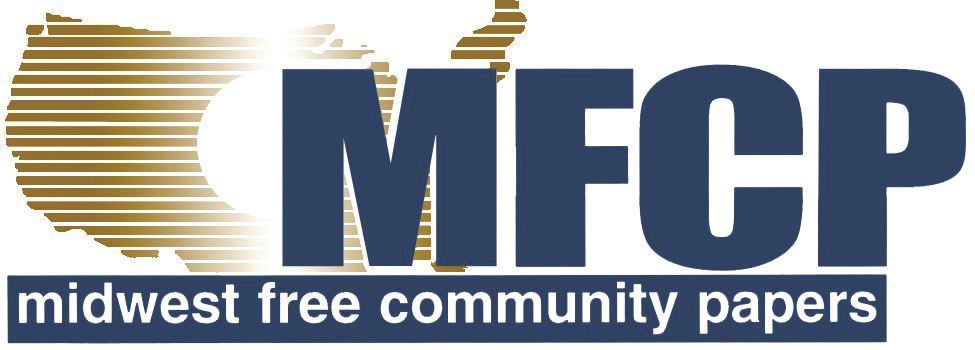TAKING YOUR OFFICE WITH YOU

Relocating for the winter meant making plans for a mobile office
This column is for my friends who enjoy reading about technology. There was a time, before some of you were born, when I wrote almost exclusively about technology. Many of the big software companies would send me everything they had to offer. That was in a time when software came on disks, then CDs. I anticipated the UPS delivery person's arrival every day, hoping they would have goodies for me.
About six months ago, I made a significant life decision. I decided to move to the beach during the winter months. That decision is paying off as I write this, as friends throughout North America are writing or calling to tell me how cold it is. As a sidenote, Ken Waddell, publisher in Manitoba, wins the coldest prize at -40 Fahrenheit.
During 2025, I spent so much time traveling to work with newspapers that I decided it was time to take a few months off from travel and stay in one place. The beach seemed as good a place as any. I planned no consulting visits. No convention speeches. No newspaper redesigns. I would catch up on several design projects on my calendar – which included eight books – and consult with newspaper clients online.
An advantage of moving to the beach is that friends come to see you … a lot. I've enjoyed hosting friends from all over the U.S. this winter, many longtime newspaper friends. While on the phone with a publisher friend in Colorado yesterday, I was asked what he would need to bring so he could design his newspaper while at my winter home. I gave him a list.
That made me think about everything I had prepared before my winter move. I had several projects to complete, I would be working with quite a few newspaper clients, and I would need access to much of what is available in my Knoxville office.
My home office workspace consists of four computers, connected to three monitors. I rarely use two of these computers, but I've found it helpful to have them around when I'm searching for an old file or need a password for a vital website stored in a web browser's cache on one of them.
I know everyone doesn't need to back up as much as I do, but, like you, I'm working with important files. Often, I have irreplaceable client files stored. Imagine getting the dreaded "corrupt file" message while working on one of these files. The following is my backup setup:
All of my computers are connected to at least two external drives used by Apple Time Machine to back up everything. My main computer backs up hourly. The others back up daily.
I have an account with Backblaze (backblaze.com) that performs an offline backup of my computers every hour.
I have an additional physical 6TB external SSD drive that I use to regularly copy all my computers to. This is the drive I brought to the beach so I could access anything on my office computers.
I have a large Dropbox account that stores my essential files. This also allows clients to access their files.
When my publisher friend from Colorado asked what he should bring during his visit (so he could lay out his newspaper), I told him to:
Set up a Google Drive (he already had), so he could access his files as necessary from his office.
Copy his entire computer to an external SSD drive, which he could work off (using my computer) to lay out his paper here.
Upload the last issue of his newspaper and the newspaper template to a Dropbox, just in case.
While working on a project earlier this week, I realized I needed an InDesign file from 2016. That was five computers ago. I hadn't copied files from that computer to the portable drive I brought to the beach, and I don't have access to it through Google Drive. 2016 was also before I began using BackBlaze. I crossed my fingers and checked my fourth option, Dropbox. Imagine the relief when I found the file.
These precautions may sound like overkill, but I’ve learned you really can't back up too much. Our files are too important to lose, and I sleep soundly knowing I always have access to the files I need.
That’s 800 words. I believe my work, at least for the moment, is done.
Kevin Slimp has been a popular consultant and speaker in the newspaper industry since developing the PDF remote printing method in 1994. His upcoming webinars on design, circulation, and software can be found at newspaperacademy.com.
Kevin Slimp is former director of The University of Tennessee Newspaper Institute and founder of NewspaperAcademy.com.
This column is for my friends who enjoy reading about technology. There was a time, before some of you were born, when I wrote almost exclusively about technology. Many of the big software companies would send me everything they had to offer. That was in a time when software came on disks, then CDs. I anticipated the UPS delivery person's arrival every day, hoping they would have goodies for me.
About six months ago, I made a significant life decision. I decided to move to the beach during the winter months. That decision is paying off as I write this, as friends throughout North America are writing or calling to tell me how cold it is. As a sidenote, Ken Waddell, publisher in Manitoba, wins the coldest prize at -40 Fahrenheit.
During 2025, I spent so much time traveling to work with newspapers that I decided it was time to take a few months off from travel and stay in one place. The beach seemed as good a place as any. I planned no consulting visits. No convention speeches. No newspaper redesigns. I would catch up on several design projects on my calendar – which included eight books – and consult with newspaper clients online.
An advantage of moving to the beach is that friends come to see you … a lot. I've enjoyed hosting friends from all over the U.S. this winter, many longtime newspaper friends. While on the phone with a publisher friend in Colorado yesterday, I was asked what he would need to bring so he could design his newspaper while at my winter home. I gave him a list.
That made me think about everything I had prepared before my winter move. I had several projects to complete, I would be working with quite a few newspaper clients, and I would need access to much of what is available in my Knoxville office.
My home office workspace consists of four computers, connected to three monitors. I rarely use two of these computers, but I've found it helpful to have them around when I'm searching for an old file or need a password for a vital website stored in a web browser's cache on one of them.
I know everyone doesn't need to back up as much as I do, but, like you, I'm working with important files. Often, I have irreplaceable client files stored. Imagine getting the dreaded "corrupt file" message while working on one of these files. The following is my backup setup:
All of my computers are connected to at least two external drives used by Apple Time Machine to back up everything. My main computer backs up hourly. The others back up daily.
I have an account with Backblaze (backblaze.com) that performs an offline backup of my computers every hour.
I have an additional physical 6TB external SSD drive that I use to regularly copy all my computers to. This is the drive I brought to the beach so I could access anything on my office computers.
I have a large Dropbox account that stores my essential files. This also allows clients to access their files.
When my publisher friend from Colorado asked what he should bring during his visit (so he could lay out his newspaper), I told him to:
Set up a Google Drive (he already had), so he could access his files as necessary from his office.
Copy his entire computer to an external SSD drive, which he could work off (using my computer) to lay out his paper here.
Upload the last issue of his newspaper and the newspaper template to a Dropbox, just in case.
While working on a project earlier this week, I realized I needed an InDesign file from 2016. That was five computers ago. I hadn't copied files from that computer to the portable drive I brought to the beach, and I don't have access to it through Google Drive. 2016 was also before I began using BackBlaze. I crossed my fingers and checked my fourth option, Dropbox. Imagine the relief when I found the file.
These precautions may sound like overkill, but I’ve learned you really can't back up too much. Our files are too important to lose, and I sleep soundly knowing I always have access to the files I need.
That’s 800 words. I believe my work, at least for the moment, is done.
Kevin Slimp has been a popular consultant and speaker in the newspaper industry since developing the PDF remote printing method in 1994. His upcoming webinars on design, circulation, and software can be found at newspaperacademy.com.
Kevin Slimp is former director of The University of Tennessee Newspaper Institute and founder of NewspaperAcademy.com.
